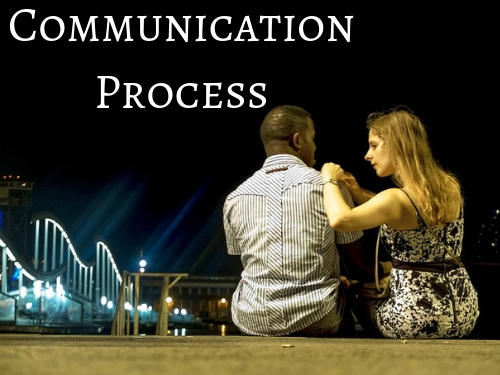7 Elements of Communication Process with Examples

The communication process plays a vital role in every stage of life. Whether it is personal or professional, by understanding effective elements of the communication process we can minimize the communication gap. There is a total of 7 components here.
7 Elements of Communication
- Sender
- Encoding
- Message
- Environment
- Receiver
- Decoding
- Feedback
Sender:
The sender is basically the entity that wants to initiate the process of information sharing via using appropriate and understandable means of communication. The sender always starts the communication process by forming the idea, feelings and intentions that will be transferred. A sender is a person who encodes and sends an effective message to the relevant receiver through appropriate channels.
A sender is the main source of the communication process and generates the message for the receiver after appropriate sources from the front.
The sender of the message in the communication process makes it successful on the basis of two major factors such as the communicator’s attitude. The communicator’s attitude has a direct impact on the receiver of his message. The communicator should always keep his mood in relaxed which effectively and directly communicated the message to the receiver. The second major factor that makes communication successful, the communicator’s selection of symbols that are used by him for communicating the message. An attractive package for How to be successful in life.
The following points will be helpful for this
- Avoid any type of Conflict
- Ways of knowing Reason
- Understanding of Interpersonal skills
ENCODING:
Encoding is a process with which the concerned aspect or subject matters in converted into communication symbols and language that is understandable by the other party. In the communication process, the sender of the message starts with the encoding process and under this process, he used various types of written words and non-verbal methods such as symbols, signs, body language and body gestures to convert the business through the communication process into a meaningful and understandable message.
In the encoding process the sender’s skills, knowledge, ideas, thoughts, background and competencies have a great effect on the communication of the business message to the receivers. Visit for Word Solver.
MESSAGE
The message is the main content of communication which consists of verbal, non-verbal or symbolic language. In the communication process, various personal factors of sender and receiver may sometimes distort this element of communication is not obtained. Message in the communication process has some effective and some quick results for the sender and receiver.
Massage is the main body of the communication process. It is considered incomplete without a message. The message of the communication process is written in symbolic form, signs, words, written form and gestures. So, the message is actually a descriptive or symbolic form of the subject matter that the sender wants the other party to understand.
RECEIVER
A receiver motivates the sender to share information such as sound, ideas, sensations and emotions etc that may initiate communication. In the communication process receive is a person or group who decodes the messages sent by the sender. The receiver is known as a decoder. He received the message and converts it into meaningful words and also make it understandable for the reader. He has complete skills for decoding of the message.
He has accurate communication skills for effective and easy communication of messages. The receiver has more brilliant verbal and non-verbal skills for decoding the messages.
For example: Seeing a patient in trouble breathing here nurse is a receiver who initiates communication with or patient. Visit for Best Softwarehouse in Islamabad.
DECODING
The receiver receives the message and then tries to understand it in the best possible manner through the reader of the message easily understands it. In the decoding process, the receiver decodes the actual subject matter that the sender wants the receiver to know or have knowledge about.
The success of the communication process depends on when the receiver exactly receives the message in the same way in the sender wants to send it to the receivers.
FEEDBACK
The feedback is the final step of the communication process which ensured that the receiver has received the message that the sender has sent to him. Its return message sends by the receiver to the sender. Its most important element of communication shows that the receiver has received the message and understands.
Feedback
is the answer to the sender message for complete authentication of the communication process. Sender and receiver have received feedback in the form of spoken word, written documents, graphics and Av aids. Successful communication is a two-way process where one person sends a message to another. The ability to effectively communicate at work, at home and at any walk of life is considered that the sender and receiver must have a set of best communication skills that a person requires. So feedback is the basic acknowledgement mechanism with which the sender gets to know what the receiver perceives with the sent message.